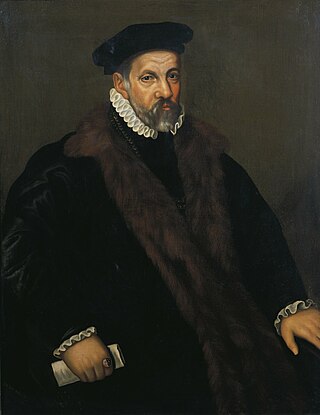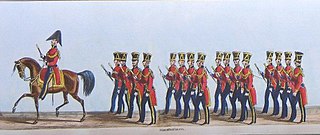Related Research Articles

Thomas Wilson (1524–1581),Esquire,LL.D.,was an English diplomat and judge who served as a privy councillor and Secretary of State (1577–81) to Queen Elizabeth I. He is remembered especially for his Logique (1551) and The Arte of Rhetorique (1553),which have been called "the first complete works on logic and rhetoric in English".

Cockfield Hall in Yoxford in Suffolk,England is a Grade I listed private house standing in 76 acres (31 ha) of historic parkland,partly dating from the 16th century. Cockfield Hall takes its name from the Cokefeud Family,established there at the beginning of the 14th century. It was purchased by Jon Hunt in 2014 to form part of his Wilderness Reserve offering exclusive rural holiday accommodation.
The Blois family have been substantial landowners in Suffolk for several centuries. Until recently the family home was at Cockfield Hall in Yoxford,Suffolk,a Grade 1 listed private house standing in 40 acres (160,000 m2) of historic parkland.

Sir Owen Hopton was an English provincial landowner,administrator and MP,and was Lieutenant of the Tower of London from c. 1570 to 1590.

The Knight Marshal is a former office in the British Royal Household established by King Henry III in 1236. The position later became a Deputy to the Earl Marshal from the reign of King Henry VIII until the office was abolished in 1846.
Thomas Tasburgh,originally of South Elmham,Suffolk,afterwards of Hawridge and latterly of Beaconsfield and Twyford,Buckinghamshire,was a member of the English landed gentry,a magistrate,member of parliament,High Sheriff of Buckinghamshire,and officer of the Exchequer to Queen Elizabeth I.

Elizabeth Brooke,also known as Lady Brooke or Dame Elizabeth Brooke,was an English religious writer,part of whose writing of Christian precepts survives,and was matriarch of a landed manorial family in East Suffolk,East Anglia,during the English Civil War and Restoration periods.
Sir Robert Brooke was an English landowner,magistrate,commissioner,military officer,knight and MP who sat in the House of Commons from 1660 to 1669. Dying at the age of 32,his promise was cut short,and the core of his estates in East Suffolk passed by marriage into the Blois family.
John Wingfield (1560–1626) was an English politician who sat in the House of Commons at various times between 1597 and 1626.

Sir Robert Brooke was an English landowner,magistrate,commissioner,administrator and MP who sat in the House of Commons between 1624 and 1629. He made his country seat at Cockfield Hall,Yoxford,Suffolk.
Sir Edward Hungerford was an English landowner and politician who sat in the House of Commons in 1601.
Sir Edmund Rous,of Dunwich,Suffolk,was an English landowner,magistrate,MP and Vice-Treasurer of Ireland.
Sir Ralph Hopton,of Witham,Somerset,was an English courtier and politician. He was the son of a member of the Hopton family and Agnes Haines.
Dorothy Kitson,later Dorothy,Lady Pakington,was the daughter of Sir Thomas Kitson,a wealthy London merchant and the builder of Hengrave Hall in Suffolk. Her first husband was Sir Thomas Pakington,by whom she was the mother of Queen Elizabeth I's favourite,Sir John "Lusty" Pakington. After Sir Thomas Pakington's death,she married Thomas Tasburgh. She was one of the few women in Tudor England to nominate burgesses to Parliament and to make her last will while her husband,Thomas Tasburgh,was still living. Her three nieces are referred to in the poems of Edmund Spenser.
Sir John Killigrew of Arwenack,near Penryn,Cornwall,was the second Governor of Pendennis Castle (1568–1584),appointed by Queen Elizabeth I,as stated on his father's brass in St Budock's Church. He was MP for Lostwithiel in 1563 and twice for the family's pocket borough of Penryn,in 1571 and 1572.
John Hopton was an English landowner and administrator with estates in Suffolk and Yorkshire who was active in local government during the reigns of King Henry VI and King Edward IV.
Sir Arthur Hopton of Cockfield Hall in Yoxford,Suffolk was an English knight,landowner,magistrate,and Member of Parliament.
Robert Hopton,of Yoxford,Suffolk and of St Mary Mounthaw,London,was Knight Marshal of the Household 1560–1577,and English Member of Parliament for Mitchell in 1563. He was a son of Sir Arthur Hopton of Cockfield Hall,Yoxford,and brother of Sir Owen Hopton,Lieutenant of the Tower of London.

Sir Edward Echyngham,,of Barsham and Ipswich in Suffolk,was a commander on land and at sea,briefly Constable of Limerick Castle,and Collector of Customs at Ipswich. He is remembered as the author of a letter to Cardinal Wolsey describing the death of Lord Admiral Howard at Brest in 1513. From 1485 the presence of the Howard Dukes of Norfolk was felt directly along the Barsham reach of the River Waveney from their possession of Bungay Castle.
Andrew Noel or Nowell was an English landowner and Member of Parliament.
References
- 1 2 G.M.C., 'Hopton, Arthur (d.1607), of Blythburgh, Suff. and Witham Friary, Som.', in P.W. Hasler (ed.), The History of Parliament: the House of Commons 1558-1603 (from Boydell and Brewer 1981), History of Parliament Online.
- ↑ Marriage Settlement, 22 May 1566, Suffolk Record Office (Ipswich) ref. HA30/369/11 (Discovery Catalogue).
- ↑ R. Virgoe, 'Hopton, Sir Ralph (1509/10-71), of Witham, Som.', in S.T. Bindoff (ed.), The History of Parliament: the House of Commons 1509-1558 (from Boydell and Brewer 1982), History of Parliament Online; R. Virgoe, 'Hopton, Sir Ralph (c.1510-71), of Witham Friary, Som.', in P.W. Hasler (ed.), The History of Parliament: the House of Commons 1558-1603 (from Boydell and Brewer 1981), History of Parliament Online.
- ↑ The National Archives (UK), Chancery: Final decrees, Mayowe v Hopton (1601), ref. C78/118/8 (Discovery catalogue); View original at AALT, images 0128-0136 (AALT).
- ↑ Will of Robert Hopton of London (P.C.C. 1591, Sainberbe quire).
- ↑ A.B. Beavan, The Aldermen of the City London, temp. Henry III.-1908., 2 vols (The City Corporation, London 1913), II, p. 44 (Internet Archive).
- ↑ Suffolk Record Office, Ipswich: Blois Family Archives, (1) Final concord (Trinity 1591), Robert Brooke and Arthur Hopton, ref. HA30/369/147; (2) Conveyance (12 June 1592), Owen Tasburgh to Robert Brooke, ref. HA30/312/2 (Discovery Catalogue).
- ↑ J.P. Ferris, 'Brooke, Sir Robert (1573-1646), of Cockfield Hall, Yoxford, Suff. and Walbrook, London', in A. Thrush and J.P. Ferris, The History of Parliament: the House of Commons 1604-1629 (from Cambridge University Press 2010), History of Parliament.
- ↑ W.A. Copinger (ed.), County of Suffolk: Its History as Disclosed by Existing Records, Vol. 1 (Henry Sotheran & Co., London 1904), pp. 222, 223, 224 (Internet Archive), citing Common Pleas, II, 13.
- ↑ The National Archives (UK), Chancery: Final decrees, Hopton v Brooke, ref C78/89/16; View originals, rots 32-39, at AALT, images 0527-0539 (AALT).
- ↑ Will of Robert Brooke, Alderman of London (P.C.C. 1601, Woodhall quire).
- ↑ Suffolk Record Office, Ipswich, Blois Family Archives, ref. HA30/312/21 (Discovery Catalogue).
- ↑ W.J.W. Kerr, Records of the 1st Somerset Militia (3rd Bn. Somerset L.I.), Aldershot:Gale & Polden, 1930, p. 3.
- ↑ Colin J. Brett, Crown revenues from Somerset and Dorset, 1605 (Somerset Record Society, 2012), p. 241.
- 1 2 3 4 5 6 7 'Hopton', in F.T. Colby (ed.), The Visitation of the County of Somerset in the Year 1623, Harleian Society Vol. XI (1876), pp. 56-57 (Internet Archive). From Harleian MS 1141.
- ↑ W.L. Rutton, 'Pedigree of Hopton of Suffolk and Somerset', in J.J. Howard (ed.), Miscellanea Genealogica et Heraldica, 3rd Series Vol. III (Mitchell and Hughes, London 1900), pp. 9-12, and notes pp. 81-86 (Internet Archive).
- ↑ J.P. Ferris/S. Healy, 'Hopton, Robert (c.1575-1638), of Ditcheat, Som. and Llanthony Abbey, Mon.', in A. Thrush and J.P. Ferris (ed.), The History of Parliament: the House of Commons 1604-1629, (from Cambridge University Press, 2010), History of Parliament Online.
- ↑ A.J. Loomie, 'Hopton, Sir Arthur (1588–1650), diplomat', Oxford Dictionary of National Biography (2004).
- ↑ 'Hundred of Shropham: Eccles', in F. Blomefield, ed. C. Parkin, An Essay Towards a Topographical History of the County of Norfolk, Volume I (William Miller, London 1805), at pp. 407-08 (Hathi Trust).
- ↑ These marriages are attributed to Frances Hopton by Rutton, Pedigree of Hopton, but to Frances, daughter of Sir Arthur Hopkins, by J.W.W., 'Fettiplace, Giles (d.1641), of Poulton, Wilts', in P.W. Hasler (ed.), The History of Parliament: the House of Commons 1558-1603 (from Boydell and Brewer 1981), History of Parliament Online.
- ↑ M.W. Helms/L. Naylor, 'Ernle (Earnley), John (c.1620-97), of Burytown, Blunsdon, Wilts', in B.D. Henning (ed.), The History of Parliament: the House of Commons 1660-1690 (from Boydell and Brewer 1983), History of Parliament Online.
- ↑ P.W. Hasler, 'Rogers, John I (c.1555-1613), of Bryanston, Dorset', in P.W. Hasler (ed.), The History of Parliament: the House of Commons 1558-1603 (from Boydell and Brewer 1981), History of Parliament Online.